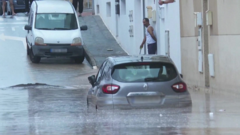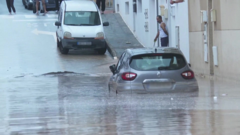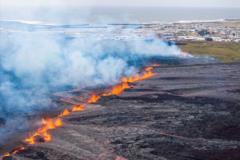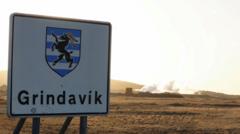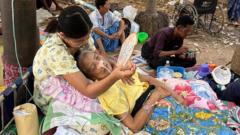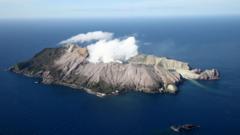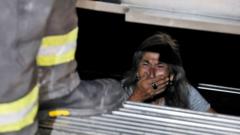As authorities declare a state of emergency on Santorini due to unprecedented seismic activity, residents face uncertainty amidst thousands of earthquakes. Experts analyze the unusual swarm, with the potential for continued tremors.
Unprecedented Seismic Activity in Santorini: Residents Face Uncertainty
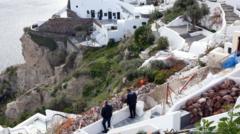
Unprecedented Seismic Activity in Santorini: Residents Face Uncertainty
Thousands of earthquakes have shaken the Greek island of Santorini, prompting evacuations and a state of emergency as authorities grapple with the ongoing crisis.
In Santorini, residents are grappling with a series of seismic shocks that have disrupted the tranquil beauty of the beloved Greek island. Georgia Nomikou, a local, has relocated her family to their living room, fearing the impact of ongoing earthquakes that have struck thousands of times over the past week. Authorities have declared a state of emergency following a significant 5.2 magnitude quake that rattled the island, prompting nearly three-quarters of its 15,000 residents to evacuate.
Experts describe the phenomenon as an “unprecedented seismic swarm,” a sudden increase in seismic activity that scientists are struggling to understand. Dr. Athanassios Ganas of the National Observatory of Athens emphasizes that this level of seismic activity is unusual, as it does not conform to the expected pattern of mainshock and aftershock sequences typical of such events.
Santorini, part of the Hellenic Volcanic Arc, has experienced no major eruptions since the 1950s, putting scientists in a bind over the cause of this recent activity. The seismic crisis began last summer with signs of volcanic awakening, leading to a surge of minor earthquakes since January. Over the last week, the situation has escalated with thousands of tremors being logged, causing heightened anxiety among residents.
Dr. Margarita Segou from the British Geological Survey describes the shake-ups as occurring in waves, increasing in intensity temporarily with larger earthquakes before subsiding. While Wednesday's quake was the most significant thus far, the duration of the current upheaval remains uncertain.
Seismic experts have highlighted the challenge of predicting how long this crisis will continue. Authorities warn that this activity could last for weeks, raising the question of whether these earthquakes are foreshocks leading to a major event or a unique phenomenon. Though there is a concern about larger earthquakes potentially looming, experts clarify that the current activity does not show characteristics of volcanic quakes, complicating the situation further.
Dr. Segou and her team are employing machine learning to analyze past earthquakes in the region to predict patterns that may indicate when the current activity might abate, but the task is daunting due to the unprecedented nature of the current seismic swarm. Circumstances have led to enhanced police and military presence on the island to manage safety protocols and support residents.
Despite the ongoing crisis, opinions among locals vary. While some residents like Ms. Nomikou are taking precautions, others, like Chantal Metakides, remain unfazed. Metakides asserts her family's home has weathered centuries of seismic activity and expresses confidence that it will endure this latest challenge as well.



